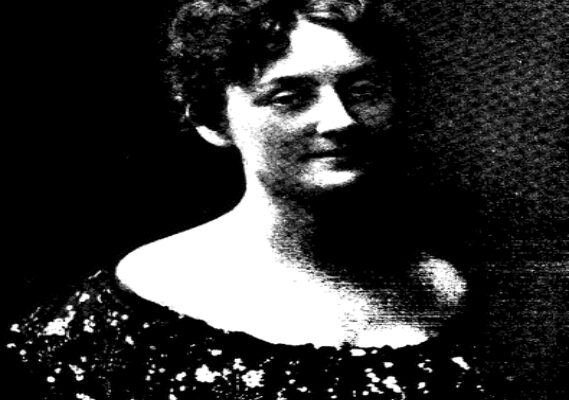Identity Dixie recently published an article by fellow contributor, Harmonica, essentially denying the popular theory that feminism began as a reaction to male-on-female abuse. A reader signed in as “MA in MO” wrote the following in response to the article:
There is no doubt in my mind that feminism is the direct result of men not living up to their responsibilities as a husband, father and provider for the family. Men became lazy and soft and wussies and refused to work, refused to participate in their marriage with their attitude of “let the little woman do all the work.” Did feminism result from physical abuse? Some of it did, but most of it was from men just simply not doing anything.
The first thing to address in MA in MO’s otherwise ahistorical comments is the phrase “there is no doubt in my mind.” If there is no doubt in his/her mind that what (s)he asserts about the origins of feminism amounts to unmitigated truth, then there is no room in her mind for the introduction of evidence contradicting her assertions, thus no room for instruction or correction. Her mind is closed as to the matter, in other words. (S)he might just as well have said, “here is the way it is, and I won’t hear of or entertain evidence proving the contrary or suggesting differently.” Or, as one of my brothers is given to pronounce when his mind is already made up on a given issue, “you’ll never convince me that,…”
I have learned the hard way over time that the best course of action is to be very accomodating to people like this in these their worst moments. It would be a complete waste of my time and energies (and possibly theirs) to, as Huxley might have stated it (tongue firmly planted in cheek), “slay their beautiful hypotheses by the introduction of ugly facts,” and I got better things to do with my time and energies than to waste either on persons who have their fingers crammed in their ears, yelling “LaLaLaLaLaLaLa!” at the top of their lungs. Metaphorically speaking, of course.
On the other hand, whenever such people make such pronouncements, we are authorized to wonder aloud, even if only between ourselves, whether or not they can back their assertions up with factual evidence that confirms or supports them – “by a preponderance of the evidence, and beyond a reasonable doubt,” I always say. That’s admittedly a high bar, but the charges leveled against “the male of the species” in such accusations will not admit of a lower one in justice.
I would personally never say to MA in MO, or anyone else for that matter, that, “there is no doubt in my mind that you haven’t any real evidence to back up your claims.” Rather, I would say something more along the lines of, “I seriously doubt you can back your claims up with anything more substantive than opinions agreeable to your position and anecdotal evidence.” Opinions and anecdotes agreeable to one’s position do not of course constitute evidence in and of themselves, but some persons seem not to understand this basic fact, and I digress.
Another problem arguments such as MA in MO’s unnecessarily, if inadvertently, introduce into such discussions is the chicken and egg situation. Granting, for the sake of argument, his/her points about men abdicating their responsibilities to their families, did feminism arise in direct response thereto, as (s)he claims, or might the process have occurred the other way around? That’s the “million dollar question” you can never arrive at a mutually agreeable answer to once that boat is set afloat, so you see how stupid and pointless this can all get, quick, fast, and in a hurry.
The reason I say such questions are unnecessary in the issue is because there is plenty of evidence contained in the historical record on the subject to nip the chicken and egg situation in the bud before it has time or opportunity to bloom and totally destroy any opportunity for meaningful discussion and dialogue. Which brings me to my next point.
If MA in MO is right about the origins of the feminist movement, it seems very odd indeed that early feminist leaders did not cite his/her list of grievances speaking on behalf of their neglected sisters in the masses, but instead spoke and wrote missives like this:
The younger feminists consider that the day is rapidly approaching when to be supported by a man in return for sexual privileges, or mere general housekeeping, or to be paid for motherhood, will be morally revolting to every self-respecting wife … The younger generation of franchise-seekers consider the vote the merest tool, a means to an end – that end being a complete social revolution.
Therein lies the key to answering the question as to the origins of feminism. It had, nor has, nothing whatsoever to do with the abdication of men of their familial responsibilities as husbands, fathers, providers. Not at least in the sense of the broad movement. And that’s what we’re talking about, afterall, is the broad movement, not some little fringe element thereof consisting of persons who were once accurately thought of and described as “abandoned women.”
What Mrs. Cooley’s statements so aptly illustrate in answer to the question of origins, is that feminism originated as a rebellion against the very fulfillment of the very responsibilities themselves, and by the very persons themselves, that MA in MO claims as legitimate widespread female grievances to the exact contrary. What they illustrate, moreover, is that feminism arose as a direct attack on the nuclear family; upon both the man’s role as husband, father, provider, as well as the woman’s role as wife, mother, and homemaker. And early feminist leaders such as Winnifred Harper Cooley et al made zero bones about that.
Moreover, the latter part of Mrs. Cooley’s quotation speaks volumes in an age when a great deal of the work the early feminists set out to achieve – complete social revolution, in her words – is now an accomplished fact, as evidenced all around us, everywhere, all the time. This wasn’t the case a mere forty years ago, and I was here to bear witness to the fact. But what I could only see dimly through my youthful glasses back then was that we were on a trajectory to arrive where we are today if radical correctives were not made to right the ship. They weren’t, and here we are. Why people my age and older marvel at how far we’ve fallen, I sometimes marvel at myself. As I tell my kids, “you can never know or understand how much we’ve lost in a mere forty years’ time.”
Finally, since I anticipate attentive readers might be wondering why I would “waste my time and energy” addressing the issues inherent to MA in MO’s comments, when I have already unequivocally stated that the best course of action in such cases is to accommodate such persons in their close-minded stubbornness to deny the possibility of alternative answers they don’t care to hear.
It’s a fair question, and I answer candidly that my aim is to preach to the choir, not in any way try to “get through” to MA in MO with counter points and evidence (s)he has no room left in her overcrowded mind to entertain. Secondly, because comboxes as such do not exactly lend themselves to article-length rebuttals to ahistorical excuses for self-destructive human behavior in any case, I determined that one more article on this important topic specifically addressing those particular excuses as stated would certainly not harm anything; while it might actually be beneficial to at least a few of our readers for whom this subject and subject matter remains a bit fuzzy. Whether I have determined correctly or not, dear reader, I leave it to you to decide.
God bless our little oasis here, and God bless the Southland!







My own theory is that feminism and misogyny are both symptoms of the
Enlightenment thinking that seeks to abolish the acknowledgement of any distinctions. It was different in the Middle Ages. Richard Walter Darre makes a good case when he points out that ‘the marriages of our ancestors were not individualist affairs as they are today’:
“Since the man, even if he is legally the head of the household, must seek his professional career outside the home – be it in the fields or in public business – he must hand over the management of the inner workings of his household to someone else, and, depending on the situation, this is typically the woman. … Among the Indo-European and Germanic peoples … the woman had supreme authority of the household management (an organizational and leadership activity of the highest order, which not only required a well-rounded personality, but above all a purposeful will … In the Middle Ages, married women wore a keychain as a symbol of their rights). … In terms of linguistic history, our word ehe (marriage) is directly connected with ewig (eternal) in the sense of ohne ende (without end). The marriages of our ancestors were not individualist affairs as they are today. … Riehl predicted … the morality of urban marriages would continue to decline and open the way for an ever more unrestrained conception of female self-worth, quite simply because the housewife would find less stimulation and less responsibility in the household. … Nowadays it is often claimed that the original position of the German-Germanic wife was something very depressing for the female soul.” pp. 140-1.
Richard Walther Darre, ‘A New Nobility of Blood and Soil’